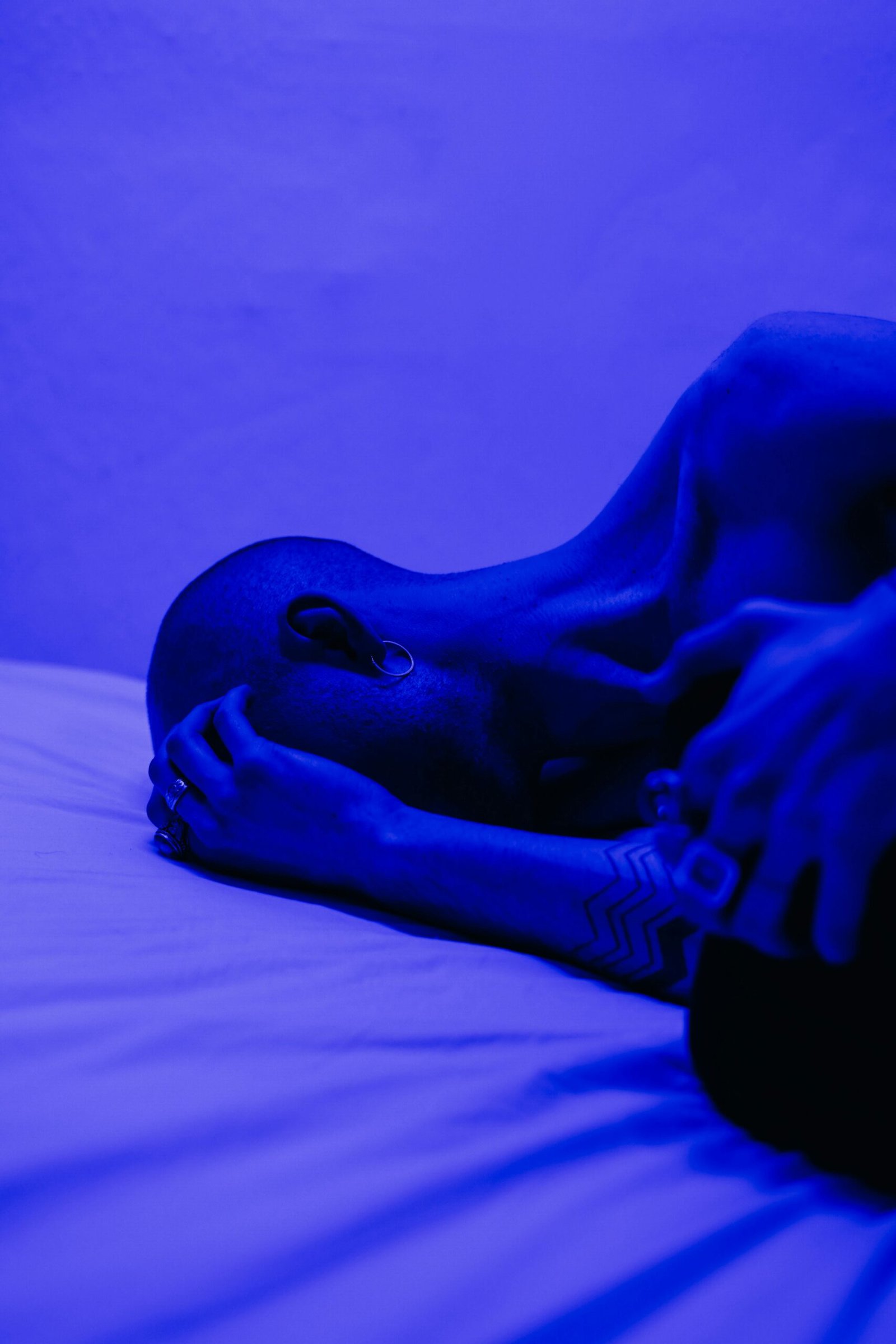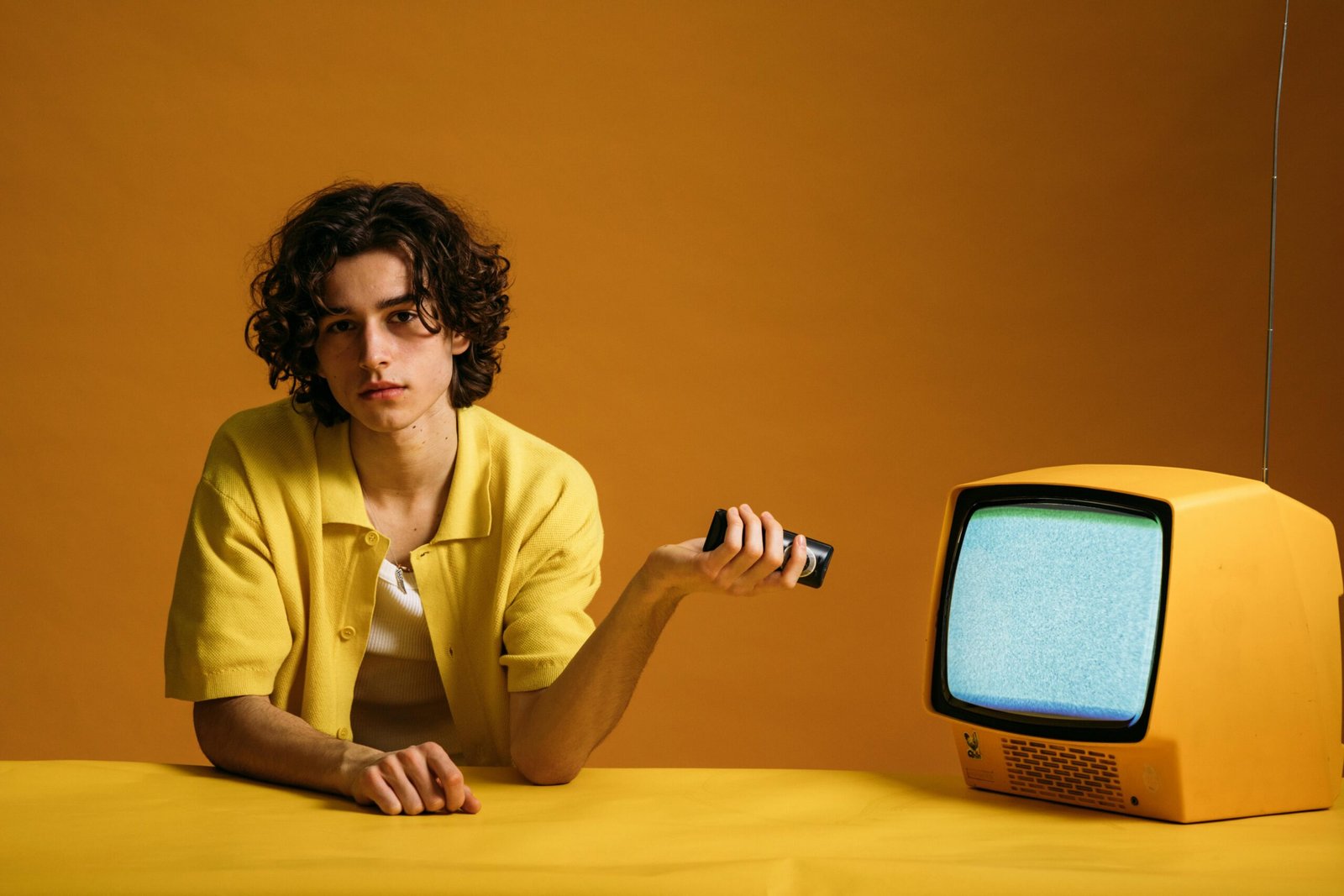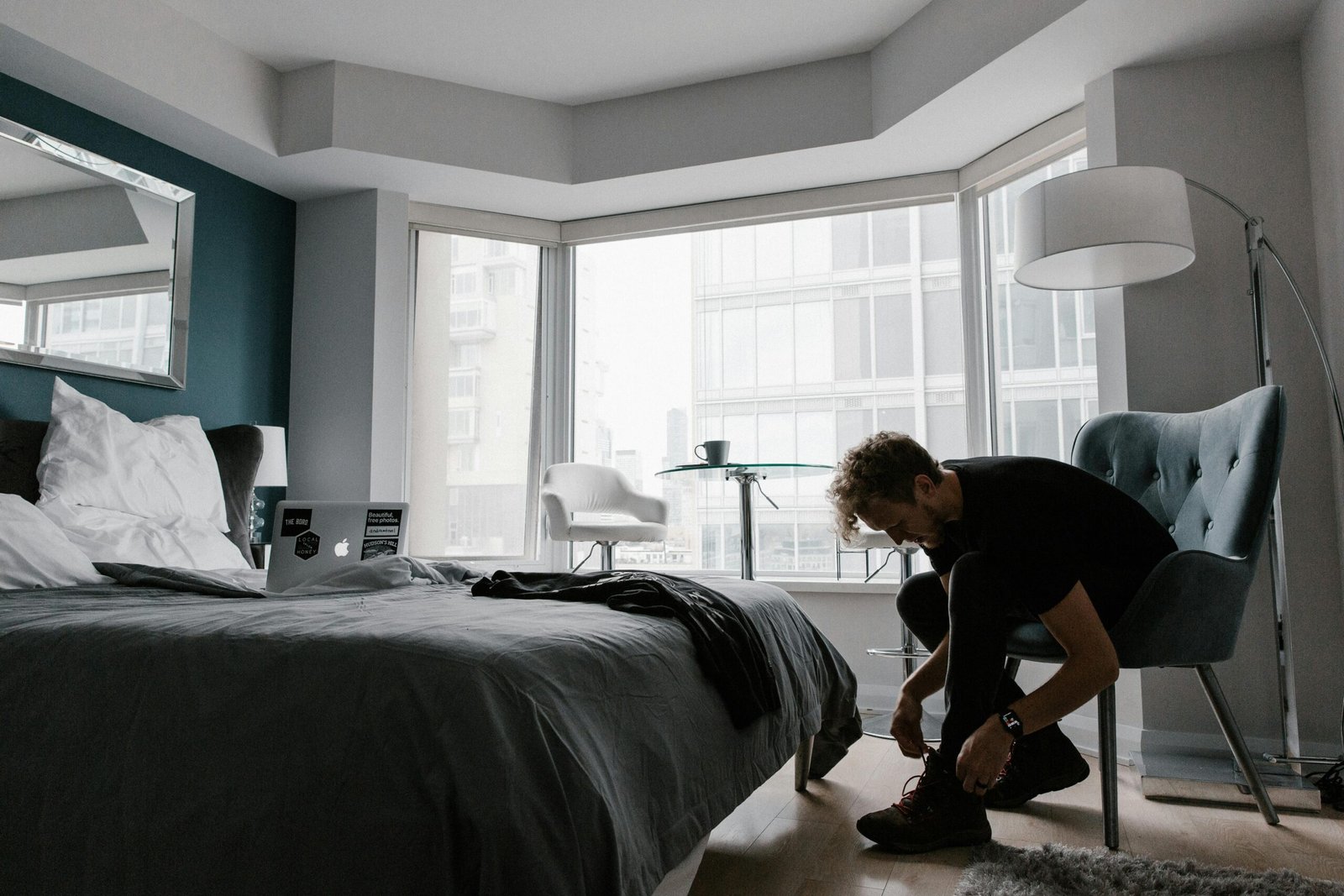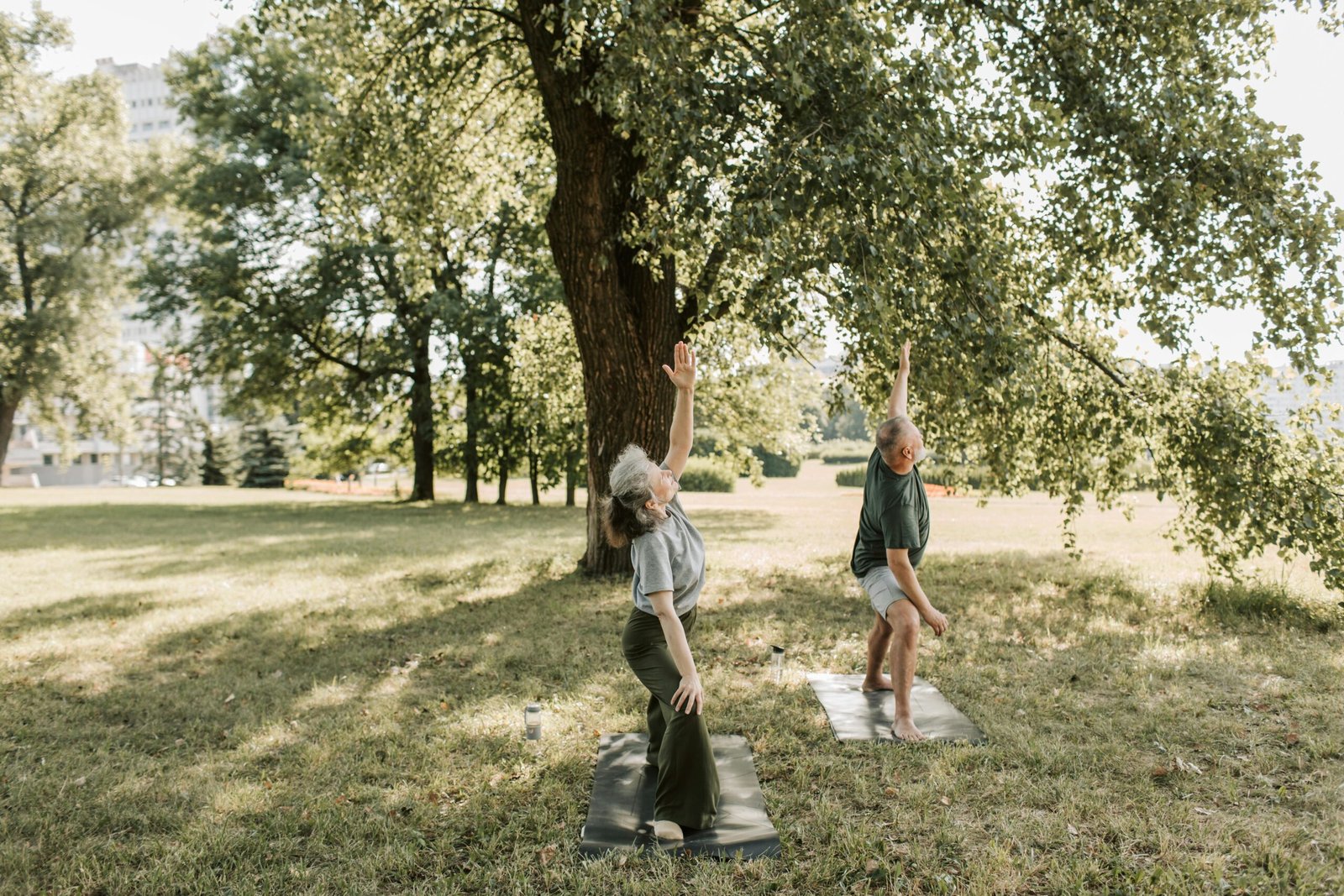In today’s digital age, most of us are surrounded by screens—smartphones, laptops, tablets, TVs, and more. We check emails, scroll through social media, stream our favorite shows, and play games, all of which expose us to blue light. But what exactly is blue light, and how does it impact our sleep?
If you’ve ever found yourself lying awake at night after using your phone or watching TV for hours, you might be wondering if the blue light from these devices has something to do with it. Spoiler alert: It likely does. But don’t worry—by the end of this article, you’ll have a clearer understanding of how blue light affects your sleep and what steps you can take to minimize its impact.
Let’s dive into the science of blue light and explore how it’s affecting your shut-eye.
1. What is Blue Light?
Blue light is a type of high-energy visible (HEV) light that falls within the wavelength range of 380 to 500 nanometers. It’s emitted by the sun and is also produced by artificial light sources, particularly digital screens, LED lighting, and fluorescent lights.
While blue light is natural and necessary in small doses to help regulate our circadian rhythm (more on that later), the overexposure to artificial blue light from screens at night can disrupt sleep patterns.
2. How Does Blue Light Affect Sleep?
To understand how blue light affects sleep, we first need to look at how our body naturally regulates sleep. Our sleep-wake cycle, also known as the circadian rhythm, is largely influenced by light. During the day, exposure to natural light helps signal to our brain that it’s time to be awake and alert. In the evening, the decrease in natural light triggers the production of melatonin, a hormone that promotes sleepiness.
Now, here’s where blue light comes in.
Blue light has a strong influence on our circadian rhythm. When we’re exposed to it, especially in the evening or before bed, it can interfere with the production of melatonin, making it harder for us to feel sleepy when we want to. In other words, using screens late at night or being exposed to bright artificial lighting can trick our brain into thinking it’s still daytime, suppressing melatonin production and delaying sleep onset.
3. The Science Behind Blue Light’s Impact on Sleep
When we’re exposed to blue light, it stimulates the photoreceptors in our eyes, particularly a protein called melanopsin. These receptors send signals to a part of the brain known as the suprachiasmatic nucleus (SCN), which helps control our circadian rhythm. The SCN responds to this light by suppressing melatonin production and promoting alertness.
The problem arises when we’re exposed to blue light in the evening or close to bedtime. This can cause melatonin levels to drop, making it harder to fall asleep and affecting the quality of our sleep. Studies have shown that even just a couple of hours of exposure to blue light before bedtime can significantly delay the onset of sleep and reduce sleep quality.
4. The Link Between Blue Light and Sleep Disorders
Prolonged exposure to blue light, particularly at night, has been linked to various sleep disorders. People who frequently use screens before bed may experience:
Insomnia
Insomnia is characterized by difficulty falling asleep or staying asleep. Since blue light suppresses melatonin production, it can delay the onset of sleep, making it difficult to fall asleep at a reasonable hour.
Poor Sleep Quality
Even if you manage to fall asleep, blue light exposure can lead to poor sleep quality. Your sleep might be more fragmented or less restful, preventing you from entering the deeper stages of sleep that are essential for physical and mental restoration.
Disrupted Circadian Rhythms
When our circadian rhythm is thrown off, it can lead to sleep and wake schedule disturbances. This is especially concerning for people who work night shifts or have irregular sleeping patterns. Over time, chronic disruption of the circadian rhythm can lead to more severe sleep disorders and even contribute to conditions like depression or anxiety.
5. Who is Most Affected by Blue Light Exposure?
While blue light affects everyone, certain groups of people are more vulnerable to its sleep-disrupting effects:
Teenagers
Teenagers are particularly susceptible to the effects of blue light on sleep due to their evolving circadian rhythms. Teenagers typically have a biological tendency to stay up later at night, and blue light exposure can further delay their sleep. Studies have shown that excessive screen time in the evening can lead to later bedtimes and shorter sleep durations in adolescents.
People Who Use Screens Late at Night
If you’re someone who likes to scroll through social media or binge-watch TV shows right before bed, you’re at a higher risk of sleep disruption. Prolonged exposure to blue light in the hours leading up to sleep can significantly affect your ability to fall asleep and the overall quality of your rest.
Shift Workers
People who work night shifts or have irregular sleep schedules are particularly affected by blue light exposure. Disrupting their sleep-wake cycle with artificial blue light can make it harder for them to adjust to changing sleep patterns, leading to more chronic sleep disturbances.
6. How Can You Minimize the Impact of Blue Light on Sleep?
The good news is that there are several steps you can take to reduce the effects of blue light on your sleep. You don’t have to cut out screens entirely, but by following a few simple habits, you can protect your sleep while still enjoying your devices.
Limit Screen Time Before Bed
One of the most effective ways to reduce the impact of blue light is to limit screen time in the hour or two before bed. Instead of scrolling through social media or watching TV, try winding down with a book, meditation, or other relaxing activities that don’t involve screens.
Use Blue Light Filters
Many smartphones, tablets, and computers now offer built-in blue light filters that reduce the amount of blue light emitted by the screen. Features like “Night Shift” on iPhones or “Night Mode” on Android devices can make the screen warmer and less likely to disrupt your sleep.
There are also third-party apps like f.lux or Twilight that automatically adjust your screen’s color temperature depending on the time of day.
Wear Blue Light Blocking Glasses
If you absolutely need to use your devices at night, consider wearing blue light blocking glasses. These glasses have special lenses designed to filter out the harmful blue wavelengths and help protect your sleep quality. They’re an easy solution if you can’t avoid screen time at night.
Install Blue Light Filters on Your Devices
There are also screen protectors and apps that can filter blue light directly from your devices. Most computers and smartphones now have built-in options to reduce blue light at certain times of day. You can activate “Night Mode” or “Blue Light Filter” settings to protect your eyes and reduce the sleep-disrupting effects.
Use Warm Lighting in the Evening
Instead of bright white or blue-tinged lights, opt for warmer, yellow-toned lighting in your home during the evening. Warm lighting mimics the natural light of sunset, which is less likely to interfere with melatonin production.
Practice Good Sleep Hygiene
Sleep hygiene refers to the habits and practices that promote better sleep. In addition to reducing blue light exposure, consider these tips for improving your overall sleep:
- Stick to a consistent sleep schedule (even on weekends).
- Create a relaxing bedtime routine (e.g., reading, stretching).
- Make your bedroom a sleep-friendly environment—cool, dark, and quiet.
- Avoid caffeine or heavy meals close to bedtime.
7. Conclusion: Be Mindful of Blue Light for Better Sleep
Blue light is a powerful tool that helps us stay alert during the day, but overexposure, especially at night, can interfere with our ability to fall asleep and get quality rest. By understanding how blue light affects our sleep and taking steps to minimize its impact, you can improve your overall sleep quality and feel more refreshed during the day.
Whether it’s limiting screen time before bed, using blue light filters, or creating a more sleep-friendly environment, there are plenty of ways to protect your sleep from the harmful effects of blue light. So next time you’re tempted to scroll through your phone right before bed, remember—your sleep might just be worth more than one more scroll.
FAQs
1. Can blue light only come from screens?
No, blue light is also emitted by natural sources like sunlight. However, the artificial blue light emitted by screens, especially at night, is much more disruptive to our circadian rhythm and sleep.
2. How long before bed should I stop using screens?
It’s best to stop using screens at least 1-2 hours before bed. This gives your body enough time to start producing melatonin naturally, helping you feel ready for sleep.
3. Do blue light glasses really work?
Yes, blue light blocking glasses can help reduce the amount of blue light that reaches your eyes, which can minimize its effect on melatonin production. Many people find them useful, especially for reducing eye strain and improving sleep quality.
4. Are there any long-term effects of blue light exposure?
Prolonged and chronic exposure to blue light at night can lead to ongoing sleep issues, potentially contributing to mood disorders like anxiety or depression. It may also negatively affect your overall health due to the lack of restorative sleep.
5. Is blue light the only factor affecting my sleep?
No, blue light is just one of many factors that can influence your sleep. Other factors include stress, caffeine consumption, room temperature, and your overall sleep habits. Managing blue light is one piece of the puzzle in improving sleep quality.




